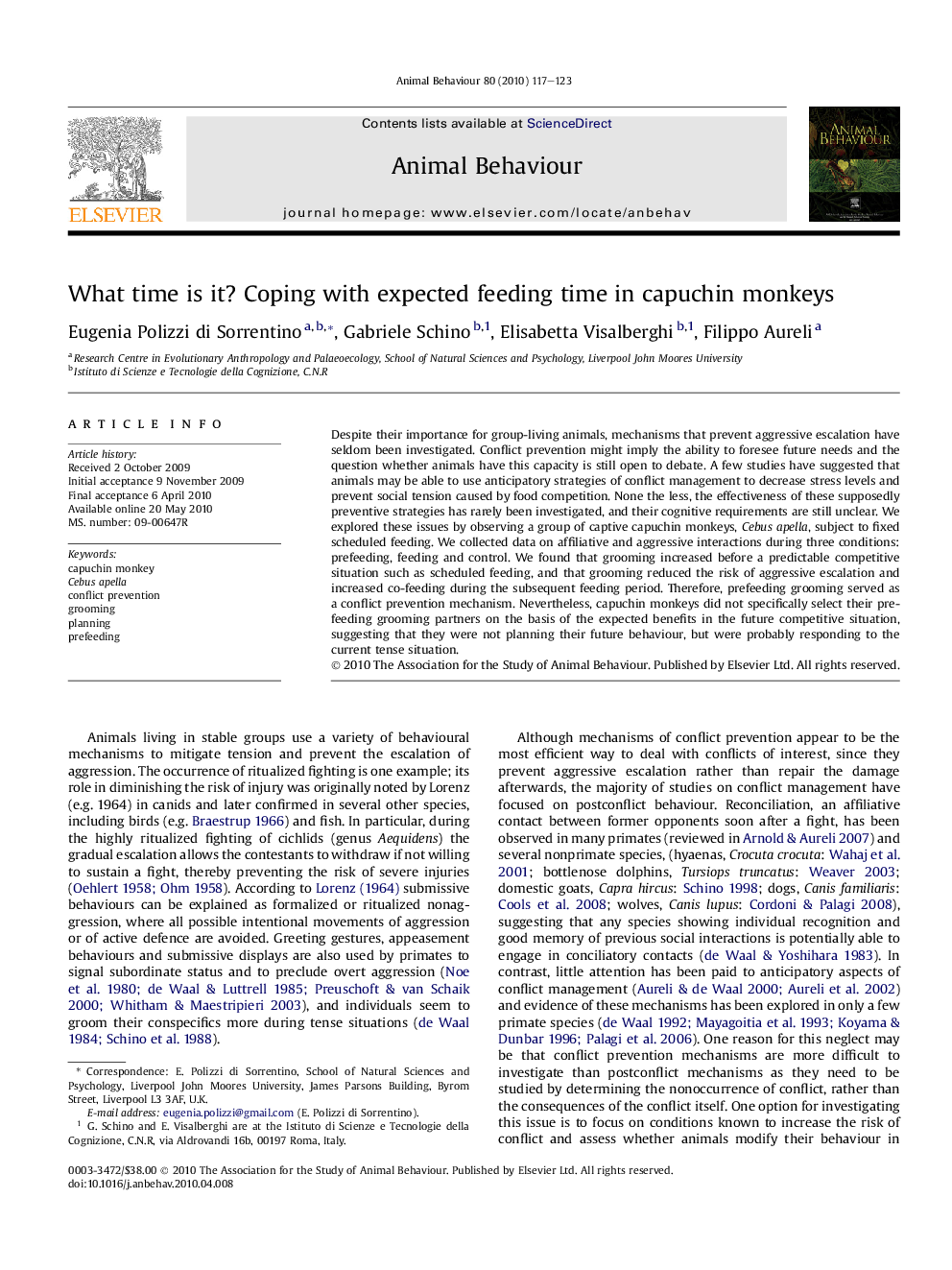| Article ID | Journal | Published Year | Pages | File Type |
|---|---|---|---|---|
| 2417277 | Animal Behaviour | 2010 | 7 Pages |
Despite their importance for group-living animals, mechanisms that prevent aggressive escalation have seldom been investigated. Conflict prevention might imply the ability to foresee future needs and the question whether animals have this capacity is still open to debate. A few studies have suggested that animals may be able to use anticipatory strategies of conflict management to decrease stress levels and prevent social tension caused by food competition. None the less, the effectiveness of these supposedly preventive strategies has rarely been investigated, and their cognitive requirements are still unclear. We explored these issues by observing a group of captive capuchin monkeys, Cebus apella, subject to fixed scheduled feeding. We collected data on affiliative and aggressive interactions during three conditions: prefeeding, feeding and control. We found that grooming increased before a predictable competitive situation such as scheduled feeding, and that grooming reduced the risk of aggressive escalation and increased co-feeding during the subsequent feeding period. Therefore, prefeeding grooming served as a conflict prevention mechanism. Nevertheless, capuchin monkeys did not specifically select their prefeeding grooming partners on the basis of the expected benefits in the future competitive situation, suggesting that they were not planning their future behaviour, but were probably responding to the current tense situation.
